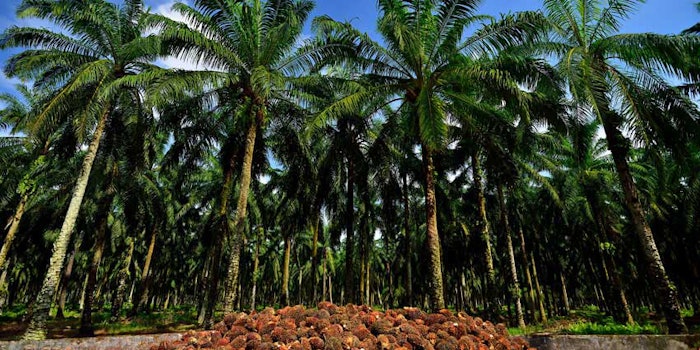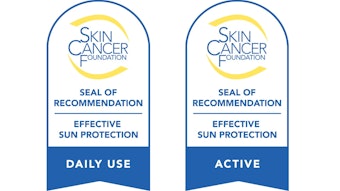
BASF announced it has published the third edition of its Palm Progress Report (PPR), featuring figures for 2018.
One of the company's key renewable raw materials is palm kernel oil and its primary derivatives, which are mainly used to produce ingredients for the cosmetics, detergent and cleaner industries, as well as human nutrition. During the past year, the company purchased 127,000 metric tons of certified sustainable palm kernel oil, which represents around 70% of the company’s total volume. According to the company's press announcement, this is an important step toward its commitment to source only Roundtable on Sustainable Palm Oil-certified (RSPO-certified) sustainable palm and palm kernel oil by the end of 2020.
In addition, for the first time, the report mentions BASF’s product carbon footprint (PCF) for sourcing certified sustainable palm kernel oil. Compared to conventional sourcing, the company saves more than 200,000 metric tons of CO2. RSPO-certified production of palm kernel oil shows around 36% lower global warming impact than non-certified production. The PCF is calculated according to the requirements and guidelines for quantification as stated in ISO “14067:2018-08-Greenhouse gases–Carbon footprint of products.”
Palm oil cultivation has been criticized for its environmental impact, and BASF shares the same concerns for environmental impact, loss of biodiversity and local communities. Furthermore, the company emphasized the importance of engaging smallholders who rely on this income.
RSPO-certified production of palm kernel oil shows around 36% lower global warming impact than non-certified production.
“No palm sustainability progress can be effective without considering smallholders as a crucial part of the palm value chain, accounting for 40% of the total area of planted oil palm in Indonesia and Malaysia,” said Ralph Schweens, president of care chemicals for BASF SE. “Our partnerships with Estée Lauder, Solidaridad and RSPO, but also Henkel, enable us to support these farmers and at the same time increase the availability of sustainably produced palm oil.”
To drive market transformation, BASF embraced an initiative to drive sustainable palm with a major portfolio shift in 2018. The company offers palm-based ingredients for the personal care market that are RSPO-certified as sustainable. This was an important milestone for the cosmetics industry. In addition, also in 2018, BASF increased its certified production sites to 23 globally.
As one of the leading global processors, BASF committed to regularly publish its PPR roadmap for sustainable palm, its collaboration along the value chain, and the progress it is making in driving physical transformation in oleo derivatives. The PPR states the dilemma in oil palm plantation development and features the company’s palm commitment as well as palm sourcing policy and its approach to include smallholder farmers; it was first published in 2016.
To review the full PPR, visit the BASF website.









